Fakfak Fiasco: From Waterfalls to Paperwork Woes
We arrived in Lobo late morning. After an early start and still buzzing from our whale shark encounter, the skipper decided to chill before heading ashore for more exploring. Mark and I opted to stay on board and skip the village visit, which did look cute and worth a wander—but we felt absolutely knackered. I’d also been roasted the day before wandering around Kaimana under the midday sun.
We stayed the night here and set off early the next day to a little bay at Aiduma Island. Yet another stunning spot—Triton Bay really showing off at this point. We could see right down to the bottom from our anchorage, which made it hard not to stare like goldfish at a glass bowl. We jumped off the back of the boat for a snorkel and swam to the beach. The plan was just a quick stop before moving to another bay, but to our relief, the skipper called it and decided we’d stay until the next evening.
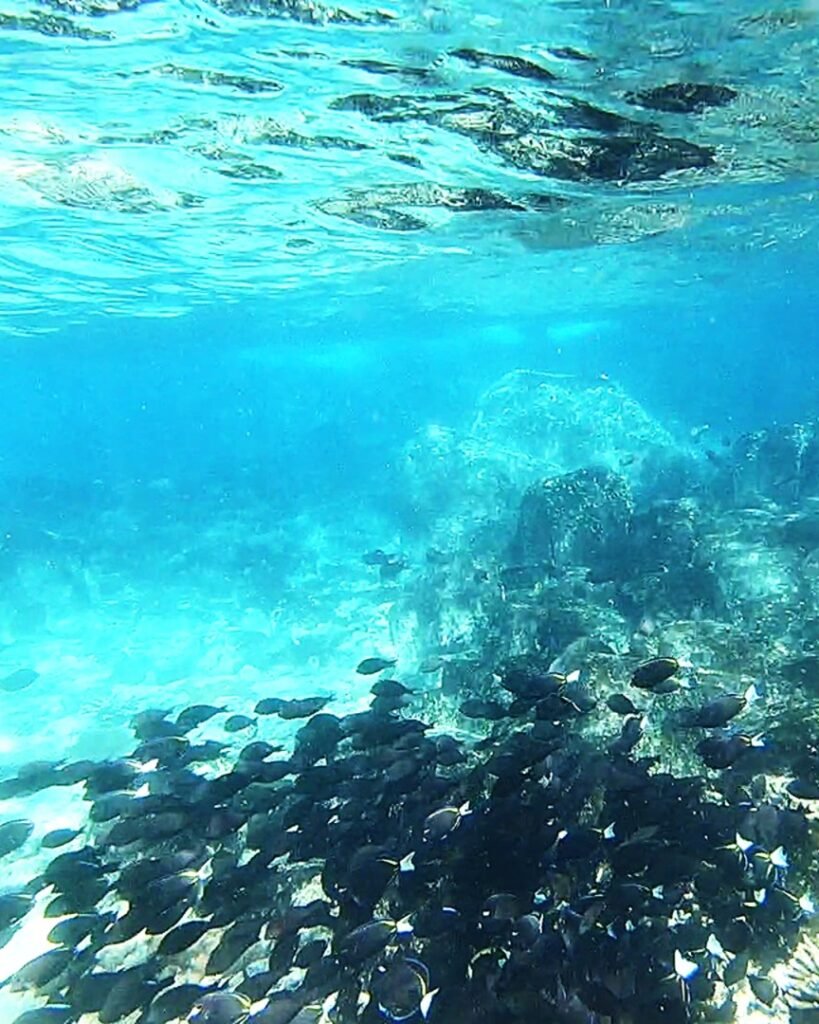
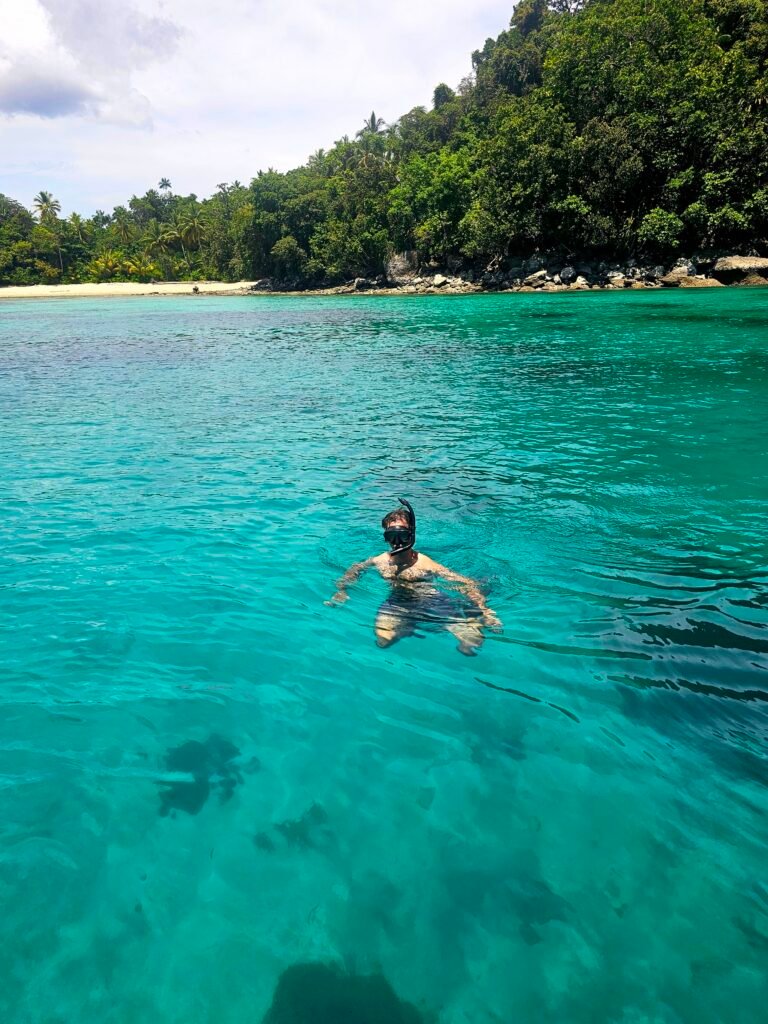
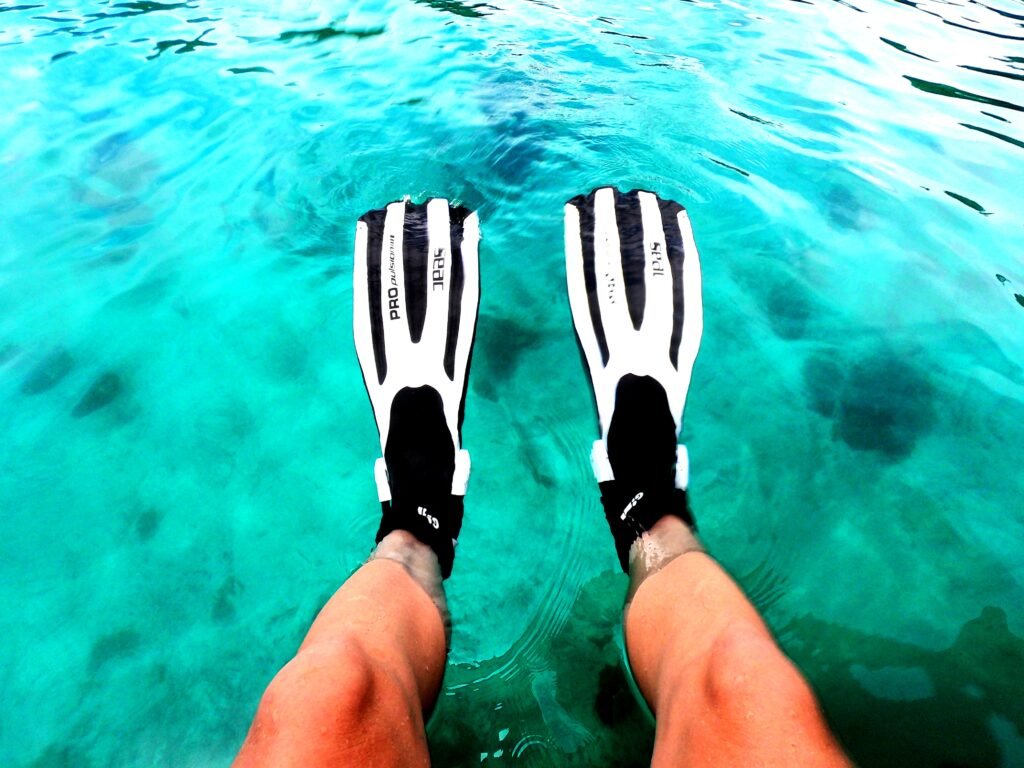
The following morning was filled with chores and boat maintenance. We thought we had until 6pm to enjoy the bay, but surprise! The skipper moved departure to midday. Cue Mark and me frantically donning swim gear for a quick lap around the boat before shoving down an early lunch. We had 14 hours of sailing ahead, which meant night watch and dinner duties. Normally, we’d cook before leaving at 6pm, but thankfully we had some pre-cooked frozen meals from our PNG crossing, ready to save the day.
After a measly three hours’ sleep, we anchored at 8am in a bay in the Fakfak region. Looked beautiful… until we spotted crocodiles. Swimming was officially cancelled. After night watches, Mark and I are like zombies at a morning rave—foggy-brained and mildly confused about why we signed up for this. Exploring new places with half-closed eyes isn’t ideal, but off we went after lunch in search of more crocs (as you do).
The waterfall was lovely, surrounded by lush greenery. Apparently, waterfalls pump out negative ions, which are meant to help with sleep, anxiety, depression, and even boost your immune system. Lower blood pressure too—mine’s already so low I practically fainted from just reading that fact. Question is, how long do you have to loiter by a waterfall to get the full ion hit? Pretty sure our 20-second spray didn’t cut it. Turns out, there’s a waterfall further up the coast called Air Terjun Kiti where the real magic happens—probably where the skipper meant to go. Instead, we stumbled upon its charming but less famous cousin. Apparently, you can swim there, and the diving is meant to be cracking.
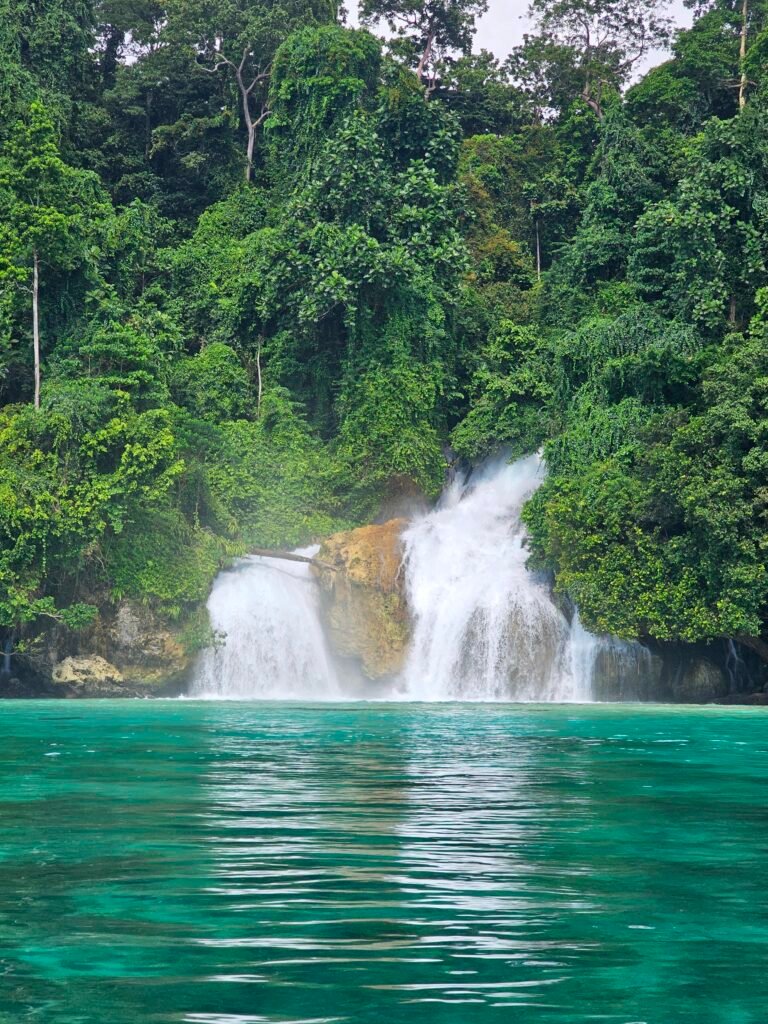
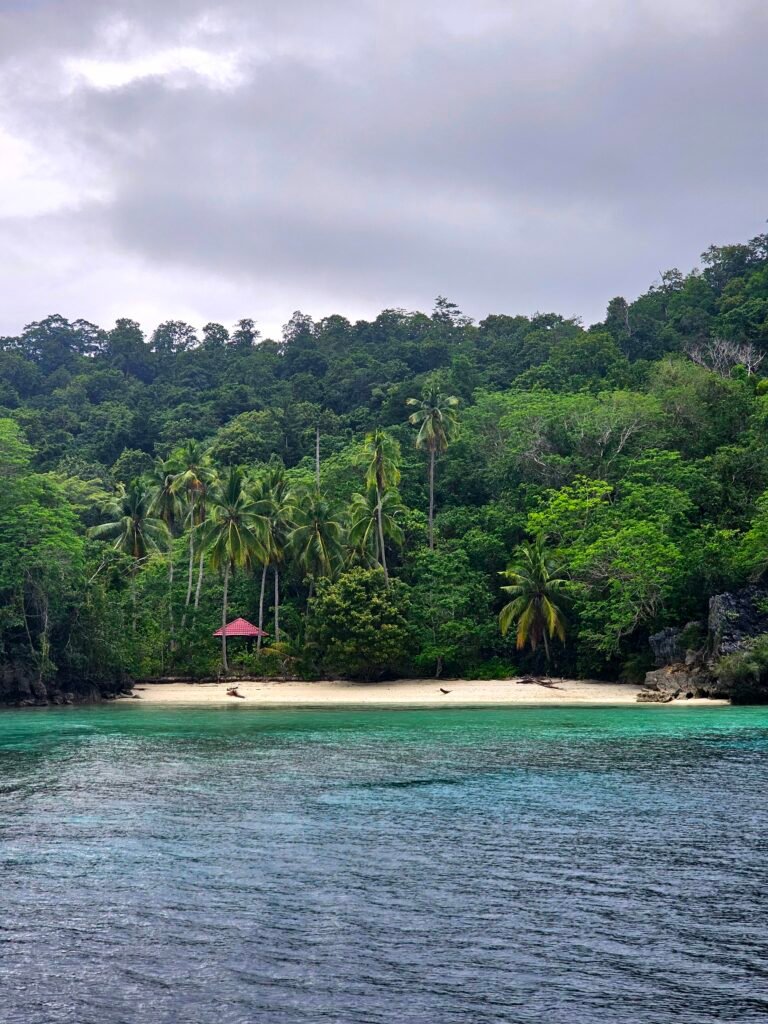
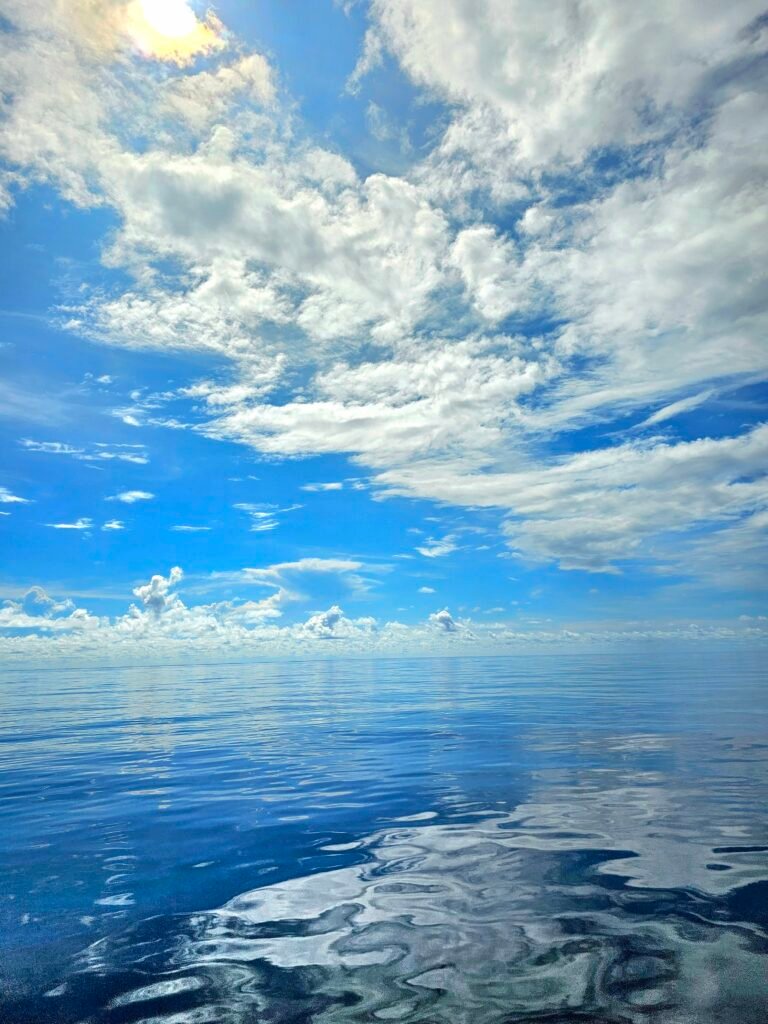
The plan was to head to Banda Island the next morning—finally ticking the Spice Islands off my bucket list—but surprise again! The skipper fancied staying put over the weekend. No swimming, no town, but plenty of peace and quiet, which the crew secretly loves. No complaints from me either, as I finally caught up on video edits and, more importantly, naps.
By Monday, surprise number three: Instead of going to Banda Islands we headed down the coast in search of a decent anchorage. Tried a few bays but they were too rolly, so we ended up outside a tiny town called Malekuli in the Kara district. Silver lining? More time on our pricey one-year permit. We decided to stay the night and explore in the morning, fingers crossed for some fresh fruit and veg.
Walking down the street, it was obvious tourists don’t exactly flood this place. Everyone waved and shouted hello, grinning from ear to ear. When we passed the school, we were mobbed by students and teachers wanting photos. We felt like rockstars, sweating buckets under the sun—no idea how celebrities survive this daily. The English teachers were lovely and explained most of the kids had never seen a white person before. We handed out our cards and woke up the next morning with 20 new Instagram followers. These kids might live remotely, but trust me, they’re better connected than we are—some with two phones each!
We carried on and managed to grab a few veggies before being stopped again for more pictures. Mid-banana bite, we were approached by the police and army, also keen for a photo shoot. So, banana down, smile on. We passed two more schools and got swarmed by more excitable kids. Thinking we’d outsmart the crowds, the crew took a backstreet like proper VIPs sneaking out of a gig. That lasted about five minutes until we found ourselves in someone’s porch, sitting with the family, neighbours, and half the village—all joining the photo session, pots and pans still in hand.
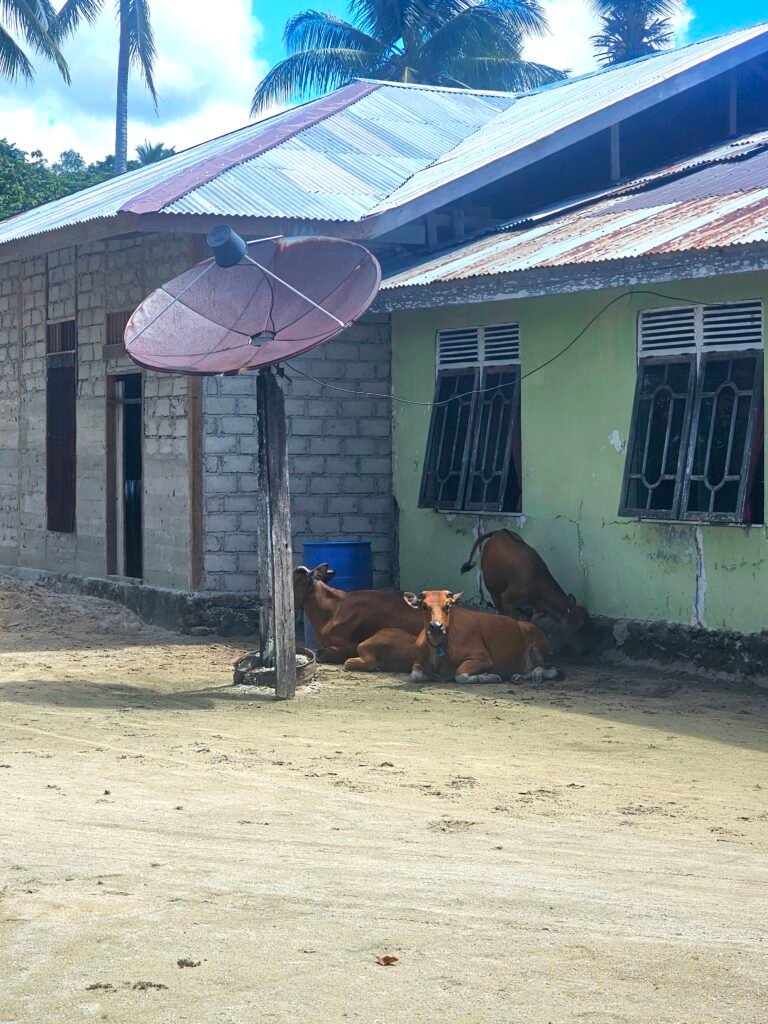
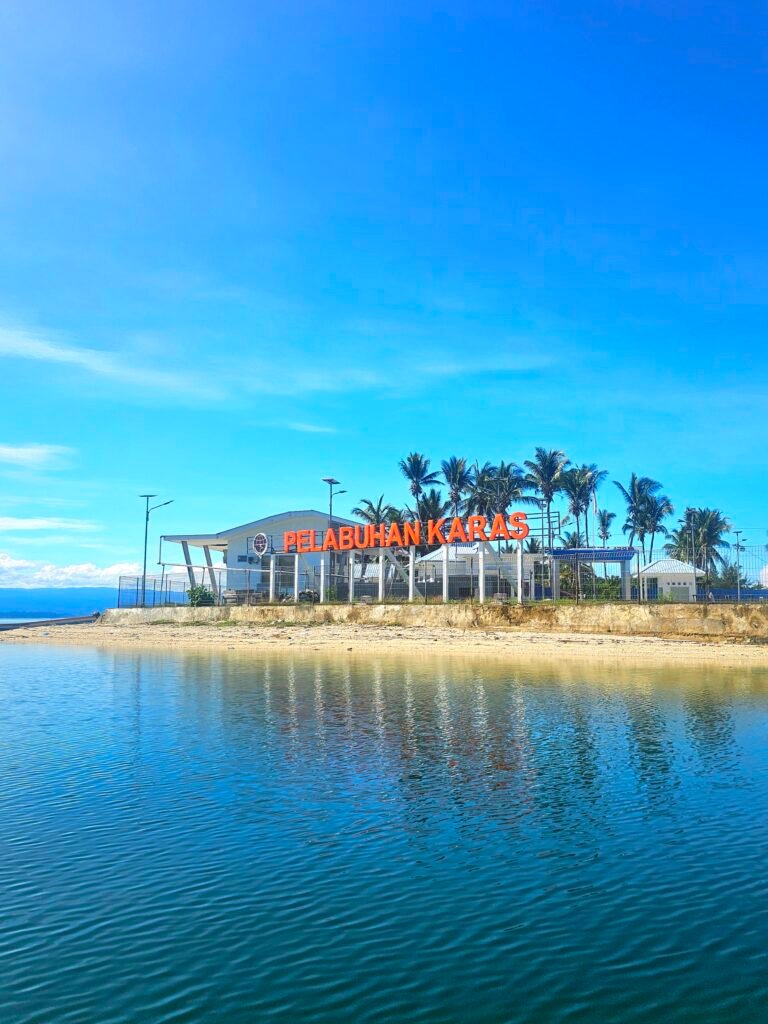
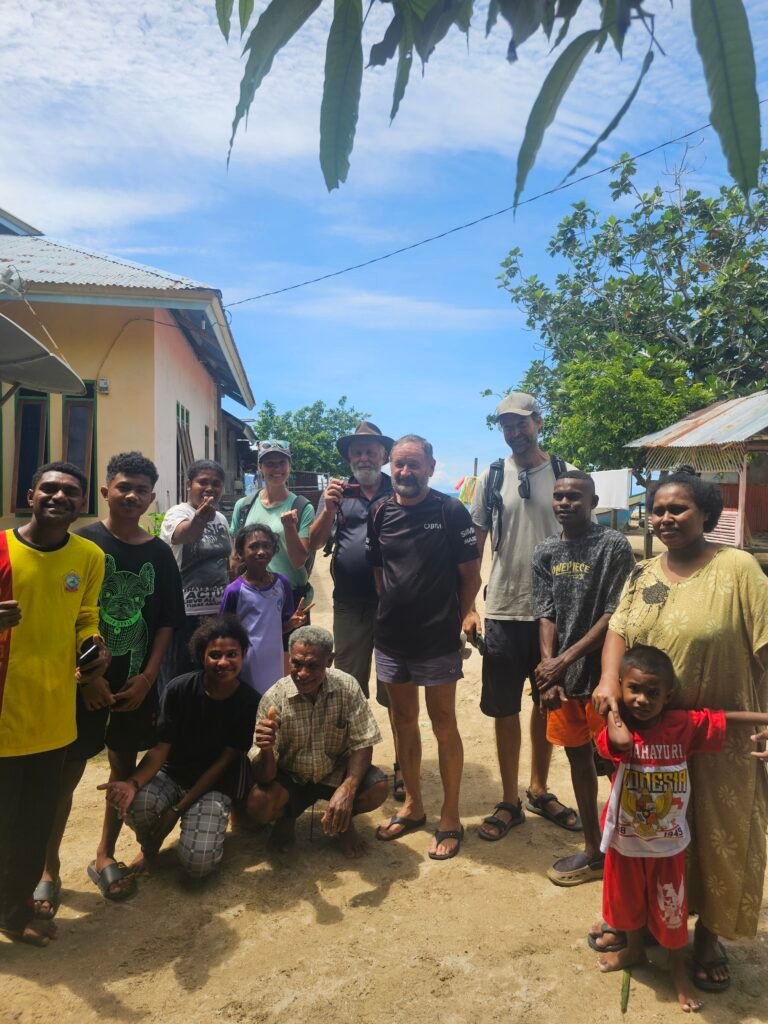
On the way back to the boat, we ran into port officials who wanted to see our quarantine book and clearance papers. No drama, we had them on board. But then came the classic bureaucratic curveball: turns out Fakfak has its own port, and now we apparently needed papers here too—despite Kaimana officials assuring us we were good to go.
Thus began literally a 3-hour ‘Fakfak Fiasco’ involving two non-English-speaking officials, a dodgy Google Translate app (which at one point translated our query into “pumpkin woman service”—no idea what that is but sounds niche), and multiple back-and-forth trips between the boat and port office. They had no printer, no copier, and we’d forgotten our all-important stamp—because nothing in Indonesia is official without one!
Eventually, they slapped us with an anchorage fee and a mysterious tax no one could explain. They even tried to confiscate our original clearance paper, which the skipper flat-out refused. The mood was tense, patience was thin, but honestly, I felt a bit sorry for the blokes—they were just trying to follow some wildly confusing policies.
Meanwhile, as if things weren’t chaotic enough, 10 boys in canoes arrived delivering 15 young coconuts (for drinking, not munching). When I asked in broken Indonesian if they were free, they all laughed and shook their heads—of course not. Two coconuts for 10,000 Rupiah (about a dollar), so Simon handed over $15 and the kids started hacking them open. Soon the boat was swarming with kids, coconuts, and paperwork drama.
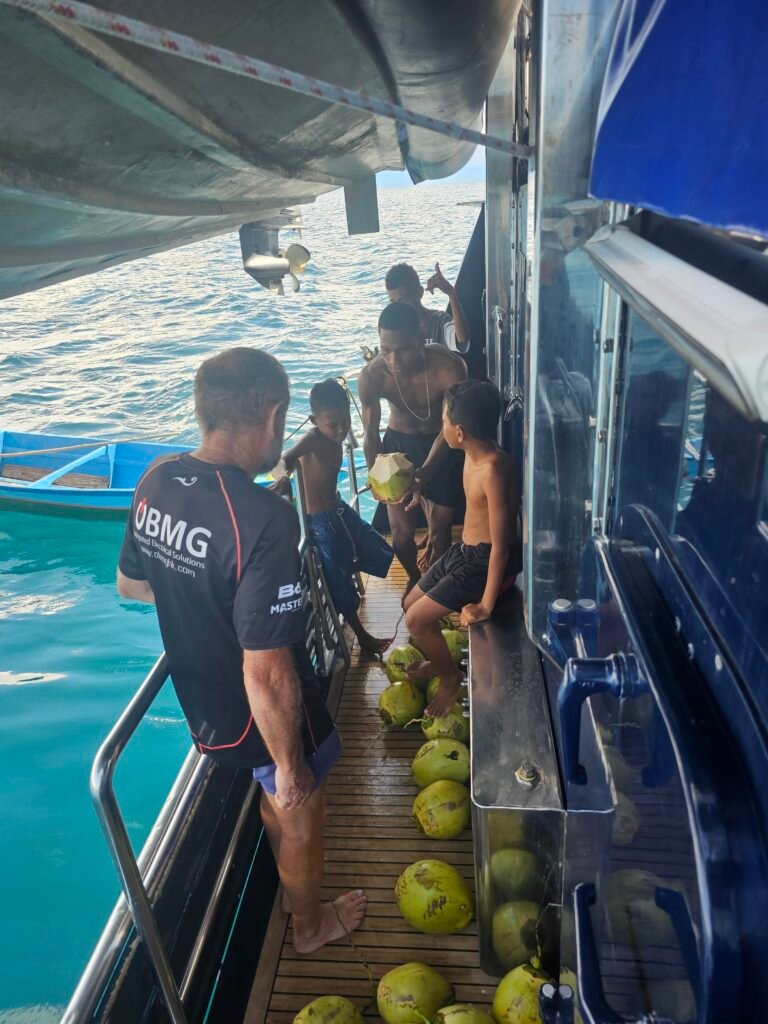
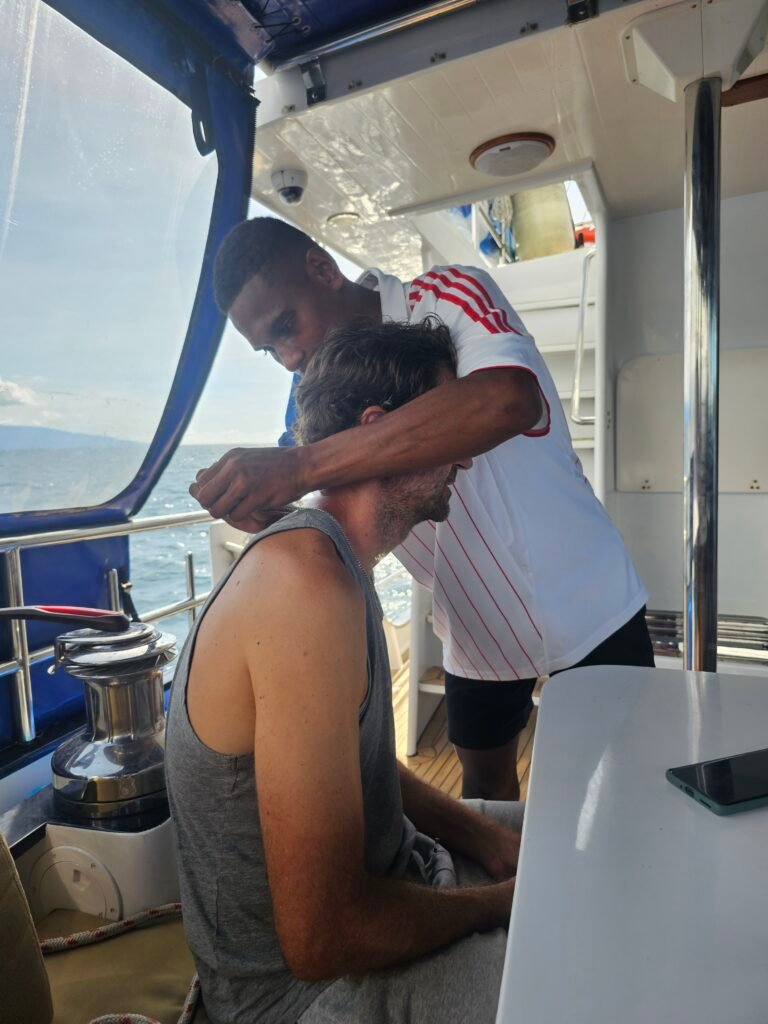
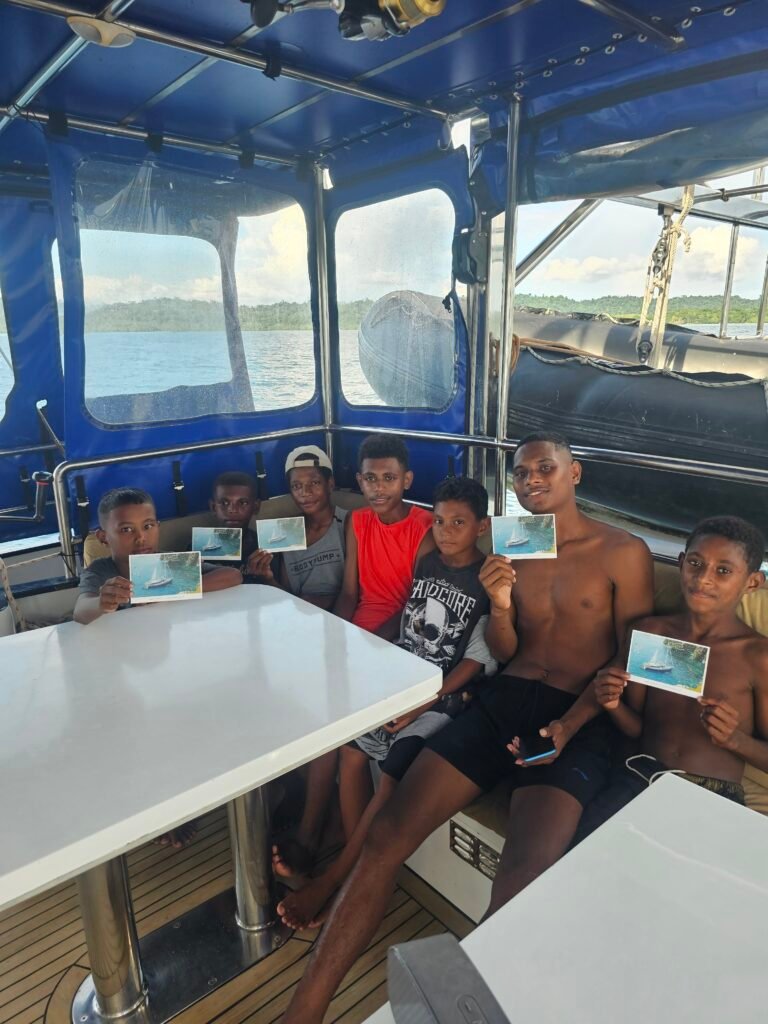
Once the officials finally left, we scoffed a very late lunch at 3:30pm, still surrounded by giggling kids glued to their phones. Mark handed out some spare shirts and one of the boys gave him a silver necklace “for safe passage to New Zealand”. It was a sweet moment, but by 5pm, we gently had to boot them off the boat so we could prep for our Banda passage the next morning. Heartbreaking, really—they were begging us to come back.
What a couple of days. Bureaucratic madness, croc dodging, waterfall chasing, and coconut chaos. Just another chapter in the tropical circus we call sailing.
